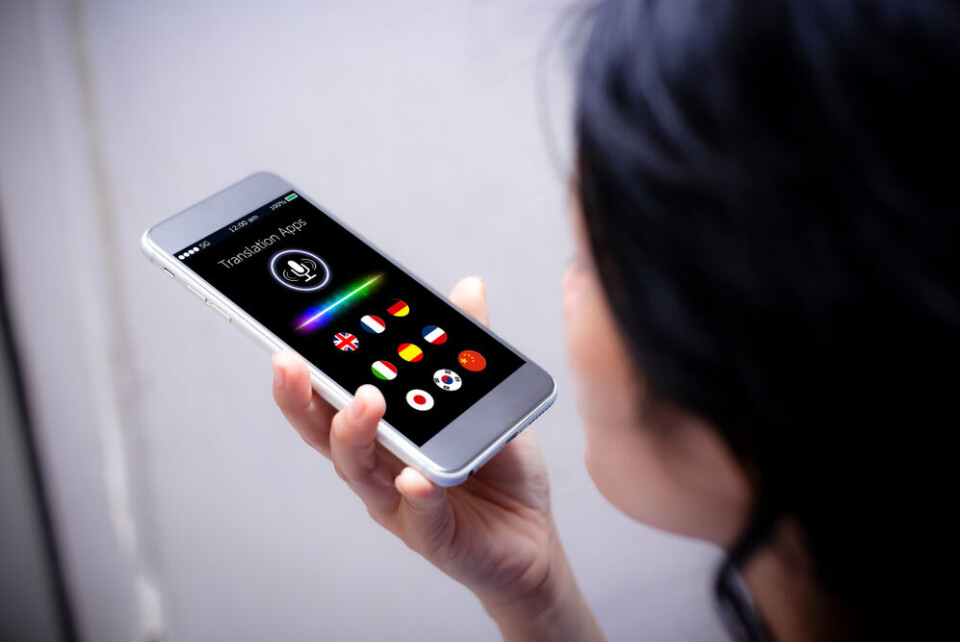-
Letters: The reality of finding a new doctor or dentist in France
Finding a replacement is nigh impossible, says Connexion reader in Lot-et-Garonne
-
The magic of mayonnaise: Why a homemade emulsion always woos guests in France
Plus, which shop-bought mayo brand is best?
-
Learning French: Have you ever dreamt in your target language?
From passive listening to active speaking, dreaming in French can indicate you are regularly practicing it
‘I will never rely on an app to translate my thoughts into French’
Online translators are useful tools but people still need to understand the nuance of language, says columnist Nick Inman

A teaching colleague tells me that in the nearest of futures, people of different nationalities who do not understand each other’s language will place an ‘Alexa-like’ device between them and it will translate their words aloud, back and forth, in real time.
It is not a new idea. Such a thing was ‘invented’ in 1978 by author Douglas Adams to help along the plot of The Hitchhiker’s Guide to the Galaxy.
His ‘babel fish’ was a ‘smart’ hearing aid that could translate between any two languages in the universe.
Read more: 10 French words and phrases that are untranslatable in English
Will a world without foreign languages be happier?
I suspect that all gadgets will eventually become old-fashioned.
First, we will have telepathic implants in our brains and then our neurons will be directly coded with enough dictionary information to make all foreign languages obsolete.
We will become walking Wikipedias.
There are two questions raised by such a utopian (or dystopian) prospect.
Will a world without foreign languages to confound us be a happier place?
I think not.
A language is more than its infuriating mechanics (its lexicon and syntax): it is also spontaneity and creativity, intentional and unintentional. It is, above all, a culture and a way of thinking.
I could know every French word ever coined but that would not help me appreciate the rich connotations that go with it.
When I talk to friends, it is not their words I am interested in: I want to know what is going on in their heads. The words are a way to that understanding; they are nothing in themselves.
Any exchange, spoken or written, is not a transfer of phrases but of sense.
Coming back to Earth, the second, more pertinent, question is what role technology can and should play in language learning in the present?
Read more: Five language ‘faux-amis’ that confused me as a French person in US
How should we best use the tools available?
Technology might be zooming ahead but there is a universal answer to this question that will be as true in the year 2123 as it is today.
Machines, however marvellous, suffer from the same flaws: they do not care what they do (they do not get embarrassed, for instance) and, as well as being artificially intelligent, in some ways they are also artificially stupid.
Or rather, as an IT expert might put it, they cannot compensate for our stupidity.
Spellcheckers, autocorrect facilities and online translators are useful aids to producing texts in French, which is a language prodigiously full of spelling and punctuation traps, but keep an eye on these tools.
If you are not in charge, who is?
It is important to check the binary digits say what you want to say before you press ‘Send’, and that means having at least a basic knowledge of the language, if not a familiarity with its nuances.
I am all for assistance in learning but we must never lose the power of discernment.
Read more: Why translating French word-for-word can help - or confuse
Language is full false friends and nuances
I demonstrate this to my students, in both language directions, using false friends and words with more than one meaning.
Rely too much on the instant magic of bytes and you might not notice that the programme has mistaken your context and chosen a perfectly good translation for a word – just not the one you would have wanted it to have chosen.
I once listened to a recipe for spaghetti à la carbonara in which the tastiest ingredient, according to the online translator, was “chest”.
Poitrine, in this case, would have been better rendered as “bacon”.
So, bring on the future. Punch your prompts into Chat-whatever and watch it generate a shopping list in the style of Molière before your eyes.
But do not surrender your human prerogative to decide between what you do and do not want to say.
Related articles
‘How to think like a French person and speak better French’
Five steps to interact better with people in French
Basque and Corsica languages now included in Google Translate software
























